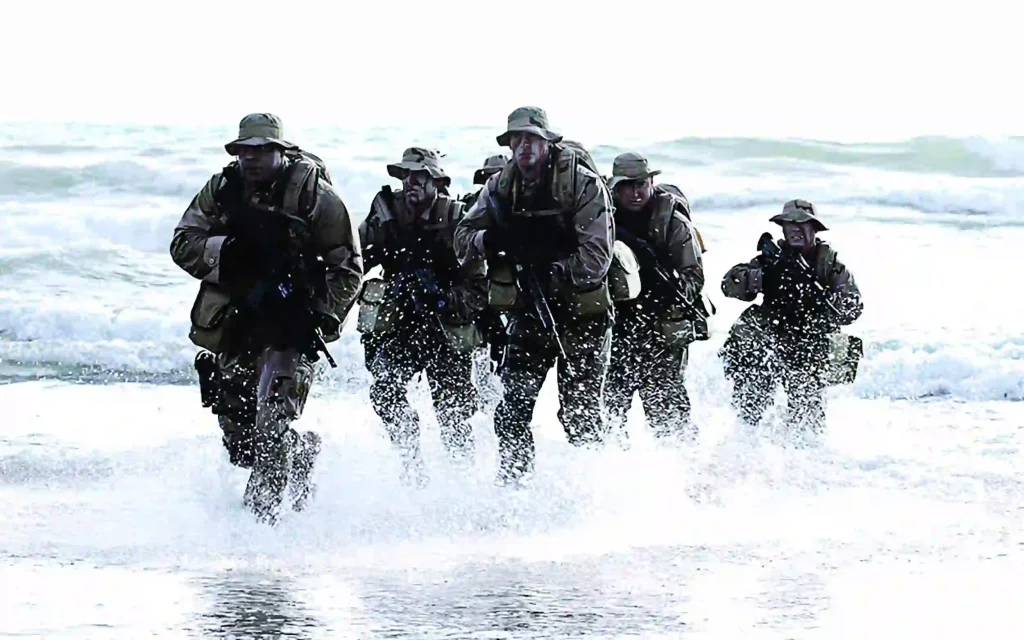
Start A Business With Navy SEALs
Whether your business is scaling or just starting up, Navy SEAL principles are worth learning. These men and women are relentlessly focused on goals, both their own and the team’s.
They rely on each other and push themselves to the limit in intense training. They are a model for business leaders in how to prepare and execute confidently in ambiguous situations.
- High Attrition Rate
Navy SEALs have a high attrition rate because of how difficult their training is. It takes years of intense physical and mental training to become a SEAL. This discipline of training helps them focus on completing tasks. Similarly, remote employees can benefit from this training by setting a clear work-life balance and focusing on one task at a time.
In a SEAL team, a leader must remove those who “ring the bell” in order to keep morale up and encourage others to try harder. They do this because they understand that a single negative mindset can derail the entire group.
This is why many startup founders and VC funds seek out SEAL alumni to help them build their businesses. Those who put these Navy SEAL life lessons into action will see their teams and business thrive. These lessons include:
- High Levels of Discipline
Powerful quotes from Navy SEALs have an innate sense of discipline that comes from years of training and planning. They are able to set goals, implement systems and follow through with hard-core accountability.
They also have a high level of self-control, which allows them to overcome temptations and distractions. For example, they often practice emergency conditioning by imagining themselves in the middle of a battle. This helps them cope with the sights, smells and physical exertion of a real-life fight.
The SEALs are also able to break down their tasks into smaller units and concentrate on them. For example, during BUDS, they break down the six-month program into 90-minute grinder sessions that they focus on for the duration of each session.
Jocko Willink and Leif Babin used their military experiences to write Extreme Ownership, a leadership book that applies Navy SEAL principles to business. They have since launched a management-consulting firm called Echelon Front to help businesses apply these lessons.
- Strong Teamwork
Navy SEALs are known for their teamwork and they understand the value of a strong, supportive team. They also know that they are only as good as their weakest link and they make sure their team members can step up in any situation. This type of mindset is a great lesson for businesses to learn.
The Navy SEALs exemplify the leadership traits that business professionals can emulate. One of those traits is taking a tough stand on key issues. They don’t dither over decisions that could mean life or death. If an employee is dragging the team down, they will be removed from the group.
This is a simple but effective way to improve team performance. It also helps to eliminate mediocrity. Many companies struggle to achieve their goals because they set the bar too low for their employees. This can be solved by establishing clear, measurable goals that are communicated effectively to all team members.
- Strong Leadership
Navy SEALs demand functional, effective teamwork from their teams. They do not lower standards or make exceptions, and they self-police. Business executives and entrepreneurs would be wise to take these lessons to heart.
One of the best lessons Strong learned from his time in the military is that it’s important to be a humble and self-aware leader. He says that you’ll “get a lot wrong,” but it’s crucial to stay focused on the big picture and analyze your own mistakes as learning opportunities.
Additionally, SEAL snipers know that no one person is indispensable in combat. Similarly, in businesses, contingency plans should be in place for any unexpected personnel circumstances so the business can continue without delay. This way, everyone is held accountable and is pushed to be their best. This type of leadership is what drives success in the military and in business. It is also the kind of leadership that companies, VCs and private equity should embrace.
